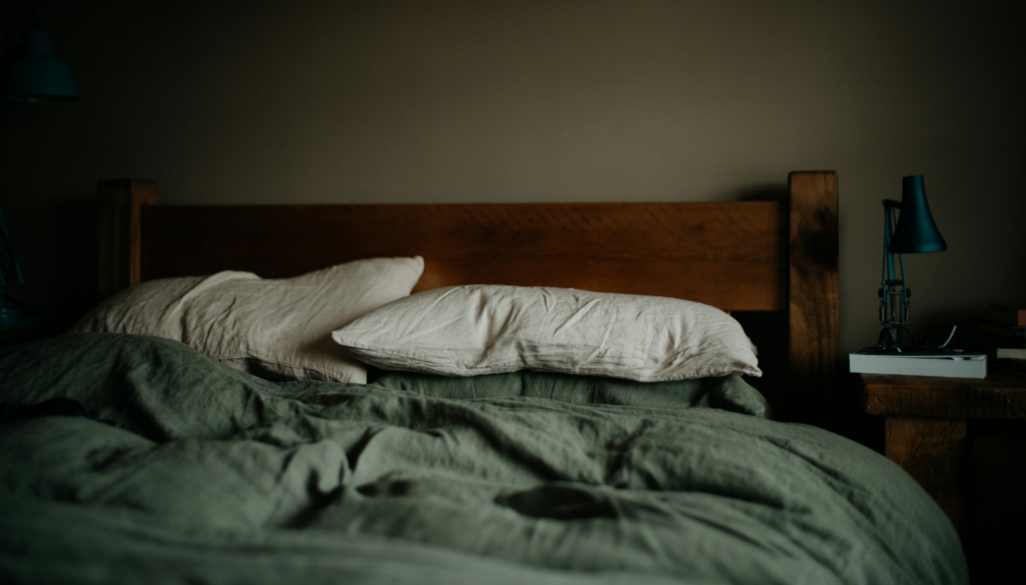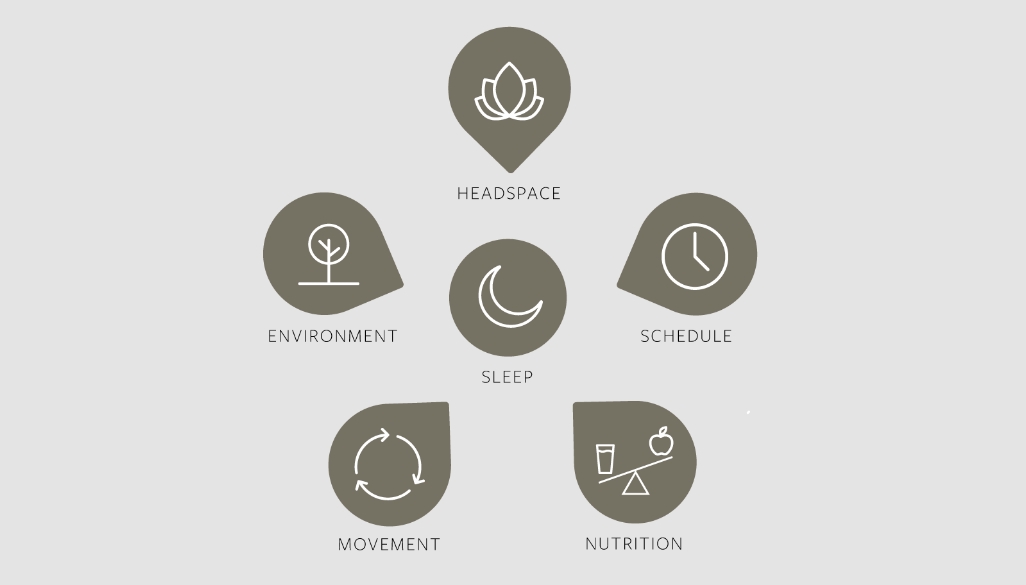What’s keeping you up at night?

Written by Talia Shapero, Certified Adult Sleep Coach
While humans are biologically wired to sleep, there are so many potential factors that influence our ability to sleep, sleep well AND feel well-rested. The good news is that sleep is a modifiable behaviour, meaning - you can change your sleep for the better!
Hi, I’m Talia. I am a certified Adult Sleep Coach based in Toronto who loves to learn, educate and support others in reaching their sleep goals.
To properly investigate sleep challenges, I look for imbalances in what I call The 5 Pillars of Healthy Sleep:
‧ Schedules
‧ Environment (including levels of light exposure that people are exposed to throughout the day and night)
‧ Headspace
‧ Nutrition (and other substances)
‧ Movement
If you’re experiencing trouble with your sleep or feel exhausted during the day, consider exploring some of the areas below to identify what might be the root cause of your issues:
Schedules
Your body needs regulation and consistency in terms of your sleep and wake schedules. Going to bed and waking up at different times throughout the week confuses your internal body clock, which can result in sleepless nights and groggy mornings.
Light
You need bright light exposure every day (ideally outdoors first thing in the AM) to help regulate your sleep and keep you feeling alert and motivated. Conversely, you should limit your light exposure in the evenings. Too much bright, blue-enriched light in the evenings may keep you awake for longer than you want.
Stress and Anxiety
In our fast-paced lives, this is one of the biggest impediments to sleep I see amongst my clients. Your body needs to be in a physiologically calm state to sleep, and stress and anxiety have the opposite effect, heightening your cortisol levels (stress hormone), making it difficult to fall asleep and stay asleep.

Environment
Your bedroom should be like a tranquil cave - cool, dark, quiet, well-venilated and tidy. The optimal temperature for sleep is between 15.5-20 degrees. Be mindful of allergens. If you’re stuffed up at bedtime, your sleep can be disrupted by a blocked nose or a dry mouth.
Nutrition and Other Substances
What you eat and when you eat can impact your sleep. Certain foods may irritate the stomach, causing acid reflux or GERD and consuming caffeine or sugar may prevent you from feeling sleepy. Deficiencies in certain vitamins and minerals (like B12 or iron) can have a detrimental effect on your sleep.
Alcohol
While alcohol may help you relax and feel sleepy, it effectively sedates you, which is different from naturalistic sleep. Drinking too close to bedtime can rob you of quality sleep and leave you feeling dehydrated and sluggish the next day.
Physical Activity
Your body needs to exert effort during the day so you can feel tired at night. Sedentary living makes it difficult to build up the momentum you need to fall asleep and stay asleep.
Medical Conditions, Medication, and Hormone Imbalances
Some medical conditions can interfere with sleep, while certain medications or hormone imbalances may have unwanted side effects that can disrupt sleep.
So, how do you determine which factors are affecting you? While there are a range of positive sleep hygiene habits you can follow to help get your sleep on track, it’s important to identify the root cause of your sleep issues by viewing sleep from a holistic perspective and examining all the potential inter-related factors that are creating sleep challenges.
To help guide your discovery, why not connect with a sleep coach? Get in touch with me here or on Instagram about any questions you may have or to book a free 20-minute discovery call.










